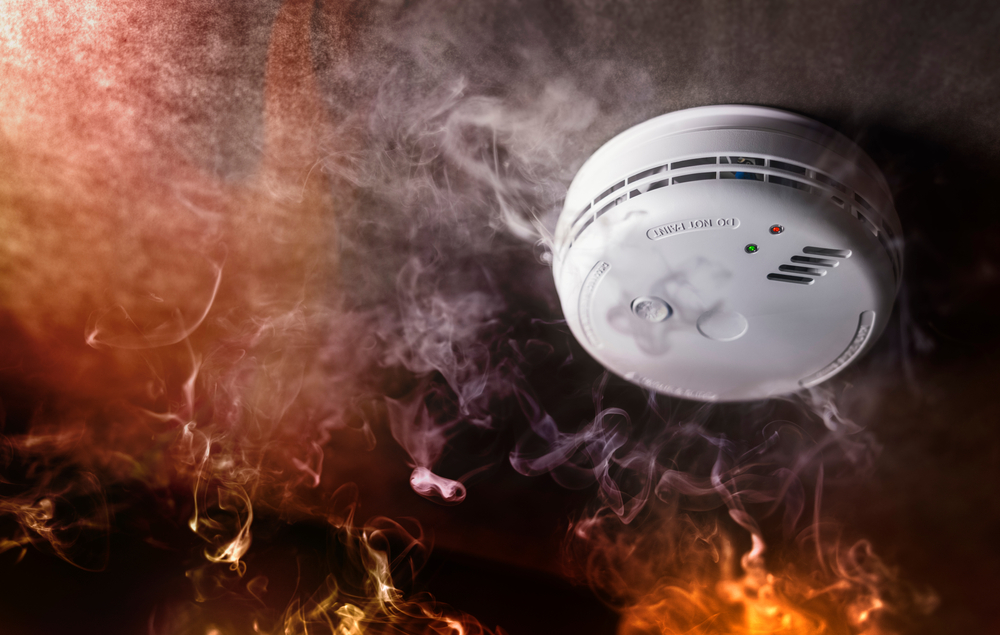Insurance giant Aviva is urging consumers to be on their guard after seeing a seven per cent increase in customer claims over the past year for fires started by lithium-ion batteries.
These are commonly found in rechargeable devices like mobile phones, tablets, power tools, e-bikes, and e-scooters.
The data, which looks at fire claims across 2022 and 2023, includes a significant house fire started by an e-cigarette being charged with an incompatible charger, extensive fire damage to a house after an e-bike with a second-hand battery was left charging unattended in a bedroom, a phone which exploded during charging after getting wet, an annexe which was destroyed by fire after batteries were left charging unattended, and fire in a garage after a faulty charger was used to charge a remote control car.
The insurer claims that one in 9 Britons have actually suffered a fire or explosion in their home due to a lithium-ion battery or device. Almost one in 10 have experienced scorching of a surface where a lithium-ion battery or device was charging, and two in 10 have a battery or device which has overheated.
An Aviva spokesperson says: “For the majority of people, devices powered by lithium-ion batteries such as mobile phones, laptops, power tools, and e-bikes are safe to use. However, these batteries can present a significant fire risk if the battery fails, is faulty, or is charged incorrectly.
“Likewise, with consumers buying lithium-ion batteries and lithium-powered devices from second-hand retailers or sellers, there is increased potential for batteries to be damaged or faulty on purchase, for the battery in the device to be different to the original, or for the charger supplied with the device to be the incorrect charger.
“Fires caused by lithium-ion batteries can devastate a property and are more difficult to extinguish. With this in mind, we urge customers to be aware of the fire risk from lithium-ion batteries and protect themselves and their properties from potentially devastating outcomes. Taking simple steps, such as always using a manufacturer recommended battery, practicing safe charging techniques, and knowing how to spot the early warning signs of a potential battery fire can make a real difference. Having the right insurance in place is also critical to protecting homes and belongings if the worst does happen.”
Aviva top tips for staying safe around lithium-ion batteries:
- Use the original battery for the device or a manufacturer recommended battery if a replacement is needed. Using non-compatible batteries can cause the battery to fail and can be a fire risk.
- Monitor the condition of the battery or device. Check for damage including bulging, dents, or signs of overheating. If you notice any damage, stop using the device immediately and replace the battery.
- Learn the signs that a lithium-ion battery is about to fail. These include excessive heat, unusual smells, bulging batteries, leaking, unusual noises such as cracking or hissing and poor performance of a device.
- Store batteries and devices safely. When not in use, store devices in a cool, dry place away from direct sunlight and flammable materials.
- Ensure you have smoke alarms installed at your property. Early warning systems such as smoke alarms and heat alarms can alert you to fires before they become a serious threat to life.
-
Charging lithium-ion batteries and devices safely:
- Always use manufacturer-approved chargers specifically designed for the device. Cheap or counterfeit chargers can be deadly as they may lack safety features and cause overcharging and overheating.
- Avoid overcharging the battery. Disconnect your device when it is fully charged and unplug the charger. Leaving items on charge continuously, such as overnight while sleeping, can be a significant fire hazard.
- Monitor batteries and devices while charging and don’t leave them unattended. There are numerous cases of fires starting while people are charging items in different rooms, sleeping, or have even left the house. Catching an overheating battery arly can help reduce the risk of a serious fire or serious injury.
- Charge batteries and devices in a safe location. Charge on a flat, non-flammable surface and avoid charging batteries or devices on soft surfaces such as beds, or close to flammable materials and hazardous substances. If a lithium-ion battery overheats, it can ignite flammable materials and cause a fire.
- Never charge batteries or devices in hallways, doors or blocking escape routes. If there is a fire, you will need to be able to escape safely.
- Inspect cables and connectors for signs of damage and wear. Replace any frayed or damaged components to prevent short-circuiting.
- Do not charge lithium-ion batteries in high temperatures or in direct sunlight. High temperatures can cause the battery to overheat and is a fire risk.
- Charge and store batteries in a fire-retardant box. A fire-retardant box will offer some protection if the battery or device overheats and catches fire, containing the explosion and helping towards preventing serious fire damage.
- Teach children how to use and charge lithium-ion batteries and devices safely. Parental supervision while using and charging devices can help prevent unsafe practices, alongside charging items outside of bedrooms.










%20-%20IMAGE%20Client%20Accounting%20%E2%80%93%20what%20are%20your%20options.jpg)


.jpg)







Join the conversation
Be the first to comment (please use the comment box below)
Please login to comment